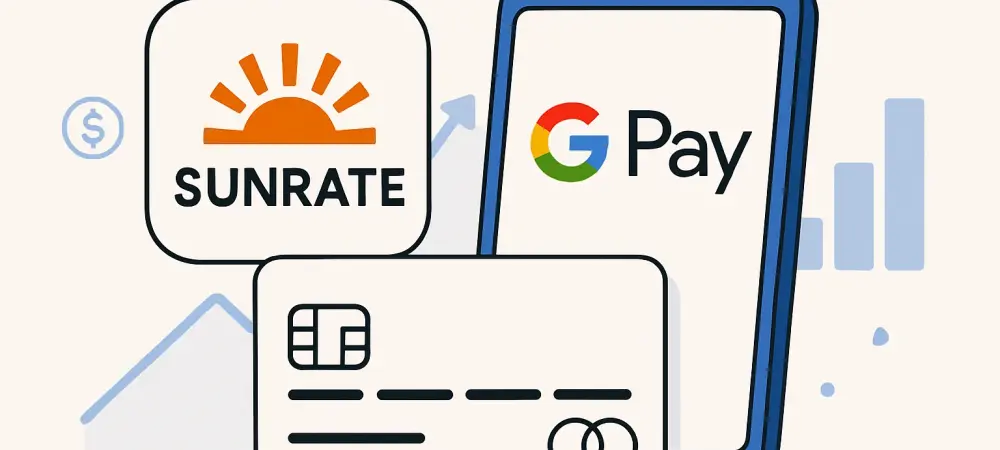Diving into the world of FinTech, we’re thrilled to sit down with a leading expert from Sunrate, a global payment and treasury management platform that’s making waves with its innovative cross-border solutions. With a mission to empower businesses worldwide, Sunrate recently integrated its commercial cards with Google Pay, marking a significant step toward faster, more secure, and convenient digital payments. In this conversation, we explore the driving forces behind this integration, the benefits it brings to businesses, and how Sunrate is shaping the future of global transactions with cutting-edge technology and user-focused strategies.
Can you share what Sunrate’s mission is as a global payment and treasury management platform, and who you primarily serve?
At Sunrate, our mission is to simplify and enhance the way businesses handle cross-border payments and treasury management. We aim to provide seamless, efficient, and cost-effective solutions for companies navigating the complexities of a global economy. Primarily, we serve small-to-medium enterprises, large corporations, and startups that operate internationally—think e-commerce businesses, travel agencies, and tech firms. These are companies that need to pay suppliers, manage expenses, or settle transactions across multiple countries and currencies.
How does Sunrate support these businesses specifically with their cross-border transactions?
We offer a robust platform that allows businesses to send payments to over 190 countries and transact in more than 130 currencies. Our proprietary technology and APIs help streamline everything from invoicing to reconciliation, reducing the friction often associated with international payments. We also provide tools for managing currency risk and optimizing cash flow, which are critical for businesses dealing with fluctuating exchange rates and diverse markets.
What inspired Sunrate to integrate its commercial cards with Google Pay?
The decision came from a clear demand for greater convenience and flexibility in digital payments. We noticed that our users—especially those on the go or managing business travel—wanted a faster, more accessible way to pay. With Google Pay being widely adopted globally, it made perfect sense to integrate our commercial cards with this platform to meet those needs and stay ahead of digital payment trends.
How does this integration align with Sunrate’s broader vision for digital innovation?
Digital innovation is at the core of what we do. Integrating with Google Pay fits perfectly into our strategy of adopting cutting-edge technologies to enhance user experience. It’s about making payments not just functional but intuitive and adaptable to modern lifestyles. This move is part of our ongoing effort to build a payment ecosystem that’s agile and responsive to the evolving demands of global businesses.
In what ways does adding Google Pay improve the payment experience for your users?
It significantly boosts speed and convenience. Users can now add their Sunrate commercial cards to Google Pay and make contactless payments in-store, online, or in-app directly from their Android devices. This cuts down on the hassle of carrying physical cards or manually entering details. Plus, Google Pay’s security features, like tokenization, add an extra layer of protection, ensuring transactions are safe across various markets.
What types of payments can users make with Sunrate commercial cards through Google Pay, and how does this help with business operations?
Users can make a wide range of payments—whether it’s in-store purchases at retail outlets, online transactions, or in-app payments. This flexibility is a game-changer for businesses, especially for managing day-to-day expenses or travel costs. For instance, employees on business trips can pay for flights, hotels, or meals seamlessly, while finance teams can track and manage these expenses more efficiently through our platform.
With Sunrate’s reach covering over 190 countries, how does the Google Pay integration enhance your global presence?
The integration makes transactions even smoother in regions where Google Pay is widely used, as it taps into an existing, trusted payment infrastructure. It reduces barriers for our users by offering a familiar and reliable payment method, no matter where they are. This is particularly helpful for businesses operating in diverse markets, as it simplifies the checkout process and builds confidence in cross-border spending.
Shawn Qin from Sunrate mentioned empowering businesses with ‘smarter’ solutions. Can you elaborate on what ‘smarter’ means in this context?
‘Smarter’ for us means leveraging technology to solve real pain points in global payments—like high fees, slow processing times, and lack of transparency. It’s about creating solutions that anticipate user needs, whether that’s through faster transactions, better security, or intuitive interfaces. We strive to balance innovation with simplicity, ensuring our tools are powerful yet easy to use for businesses of all sizes.
Were there any significant challenges Sunrate faced while integrating with Google Pay, and how did you address them?
Integrating with a platform like Google Pay does come with technical complexities, especially ensuring compatibility across different systems and maintaining robust security standards. Our team worked closely on testing and refining the process to guarantee a seamless rollout. We also prioritized user education, making sure our clients understood how to set up and use the feature without disruption to their operations.
Looking to the future, what’s your forecast for the evolution of global payment solutions like those offered by Sunrate?
I believe we’re heading toward an even more interconnected and instant payment landscape. Technologies like blockchain and AI will play a bigger role in enhancing transparency and efficiency in cross-border transactions. We’ll likely see greater adoption of digital wallets and contactless payments as businesses and consumers alike prioritize speed and security. At Sunrate, we’re committed to staying at the forefront of these trends, continuously evolving our platform to meet the needs of a rapidly changing world.

